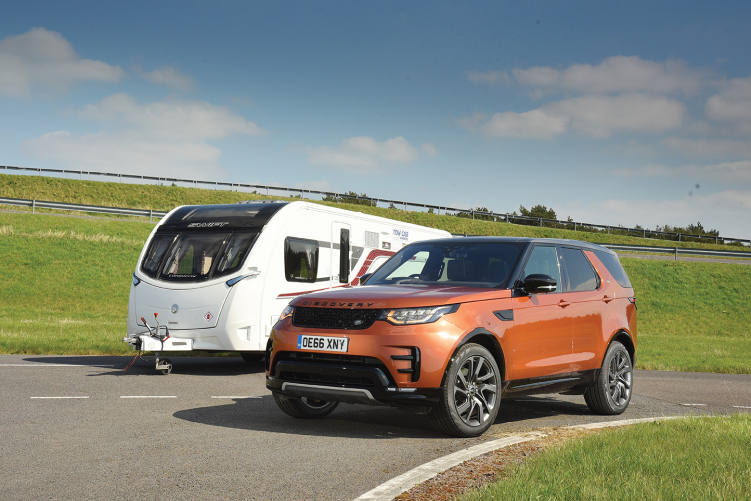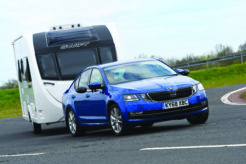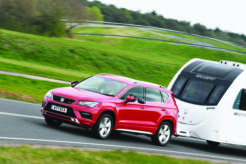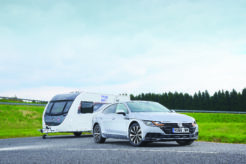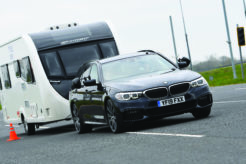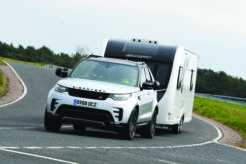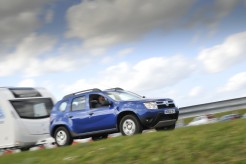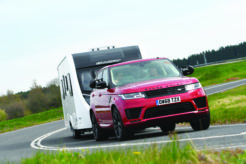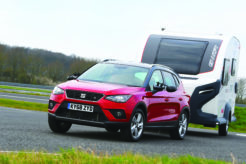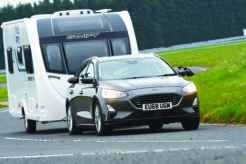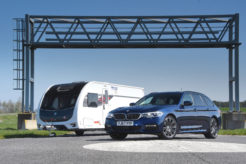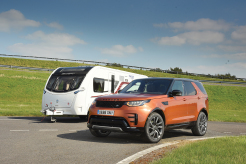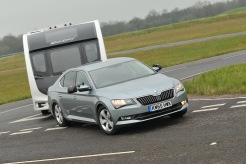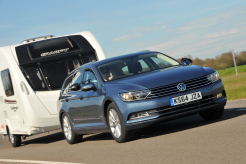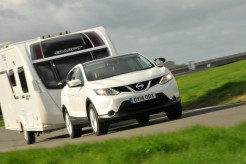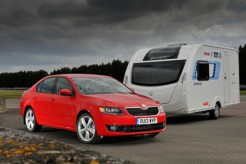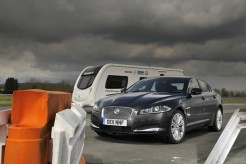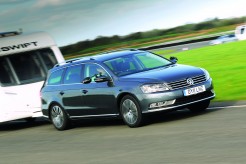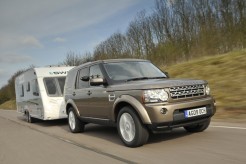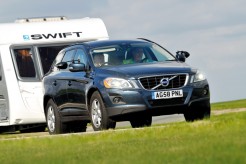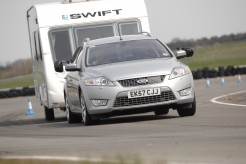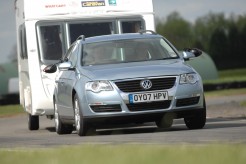The new Discovery has a tough task. Its predecessors have won the heavyweight class every year but one since the Tow Car Awards started in 2007.
Over the past few months while we’ve been waiting to drive the car, there have been a few nagging doubts.
Would shaving hundreds of kilos from the kerbweight make the Discovery a less able tow car? Is this new, slicker, more modern Land Rover still a true Discovery?
We needn’t have worried. Today’s Disco picks up where the old model left off, maintaining its strengths while attending to its weaknesses.
Most importantly, it’s still a superb car to tow with. Yes, it’s lighter, but it still tips the scales at almost 2.3 tonnes.
In still air the Discovery is imperious travelling 10mph beyond the UK motorway limit. Even in a strong crosswind the Discovery is reassuringly stable, and the Al-Ko ATC sensors picked up very little sway from the caravan when slowing from 60mph.
Although the Mercedes-Benz GLE and Volvo XC90 Twin Engine are both quicker than the Discovery, we can’t see too many owners complaining about the Discovery’s pace, needing just 10.5 seconds to pull a big twin-axle caravan from 30-60mph.
The hill-start test on a 1-in-6 slope was almost ridiculously easy for the Discovery, so we tried it on a 1-in-3. It made little difference – the electronic parking brake still held car and caravan still and released smoothly, and the 3.0-litre diesel’s 443lb ft of torque pulled to the top of the hill without fuss.
The old car was rock solid at speed, and could pull a big twin-axle up steep slopes, too. Where the new car really scores over the old is in catching up with more modern rivals in terms of fuel economy and emissions, and interior quality. The official combined figure of 39.2mpg and carbon dioxide emissions of 189g/km mean the Discovery is now more competitive with cars like the Audi Q7 and Volvo XC90.
Inside, the Discovery is roomy in all three rows. Adults can travel comfortably in seats six and seven, and you can’t say the same of many other big 4x4s. And whereas the old car had a utilitarian look inside, the new model is closer to a Range Rover in terms of design and finish.
What’s more, What Car? predicts the best resale values of any car in this year’s tests, so if you have almost £60,000 to spend on a tow car you know you’re spending the money wisely.
The fact that the new Land Rover Discovery is our overall champion will come as a surprise to nobody – Land Rover’s track record in these awards is second to none. But this was no foregone conclusion.
This has been a vintage year for new tow cars, with new models finishing second or third in their classes that might have been overall winners in a weaker year. The strength in depth has been remarkable.
Of the other four main class winners, it’s the Jaguar F-Pace which pushed the Discovery closest. It won the ‘1700-1899kg’ class by a street, and handled this year’s gusty conditions superbly.
But even with such strong competition, the Land Rover fully deserves its title. As an all-rounder, it sets a new benchmark.
You still get the stability at speed which has always been the Discovery’s most important quality as a tow car. But clever technology makes towing with the Land Rover more straightforward than ever – like the optional Advanced Tow Assist system which makes reversing a caravan simple, even for less experienced drivers.
The old Discovery may have been the best big tow car, even at the end of its production life, but it felt old in other ways. The new Discovery is bang up to date.
In everyday driving, the new Discovery rides as comfortably as ever, but it’s now quieter at speed. The new model is more economical and emits less, so company car drivers no longer face a big tax premium for choosing the Land Rover over its rivals.
Inside, the new Land Rover is practical and roomy for seven, and the flexible seating is now easier to exploit. On high-spec models the seats can be raised or lowered at the touch of a button – or a smartphone touchscreen.
With a price tag of £58,795, we appreciate that the Discovery isn’t within everyone’s reach, although exceptionally strong predicted resale values help soften the blow. If you do have the means, though, the new Land Rover is worth it. We think it’s the best tow car you can buy.
*Model pictured: HSE Luxury





